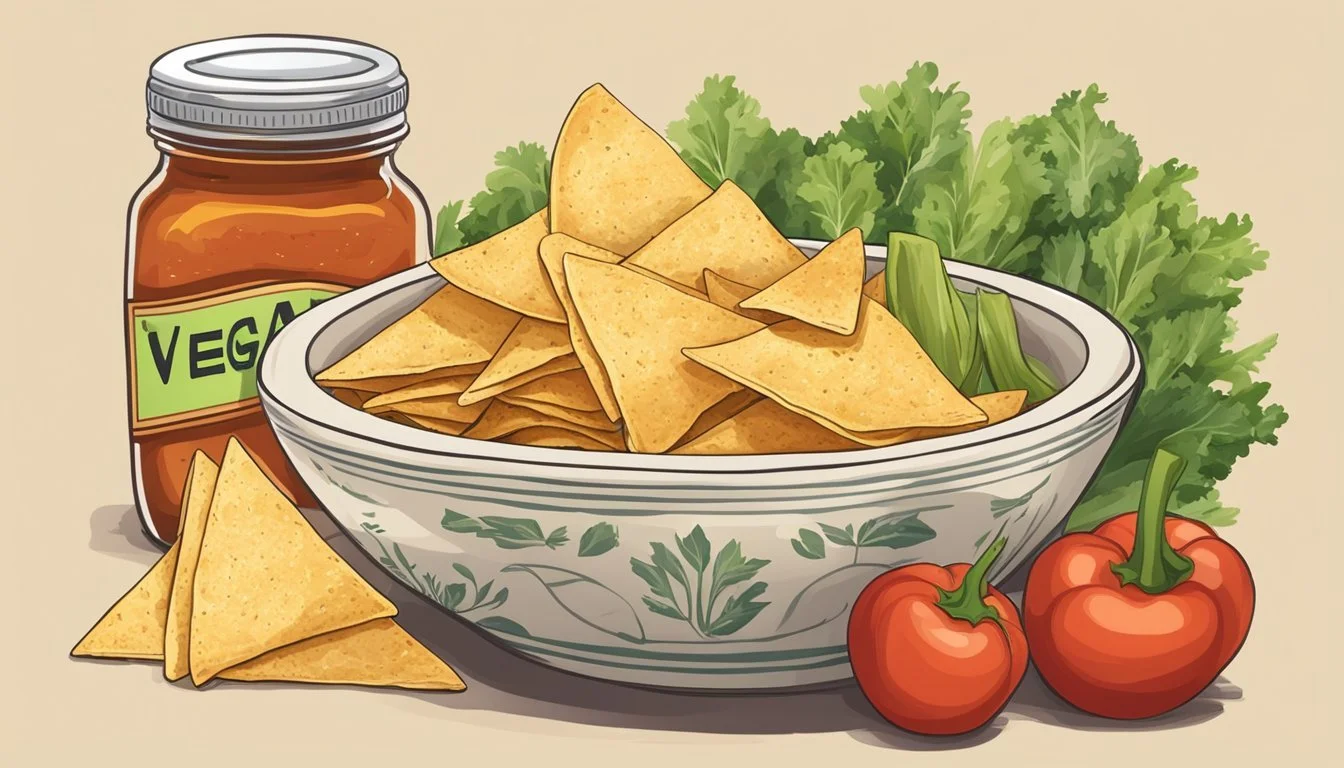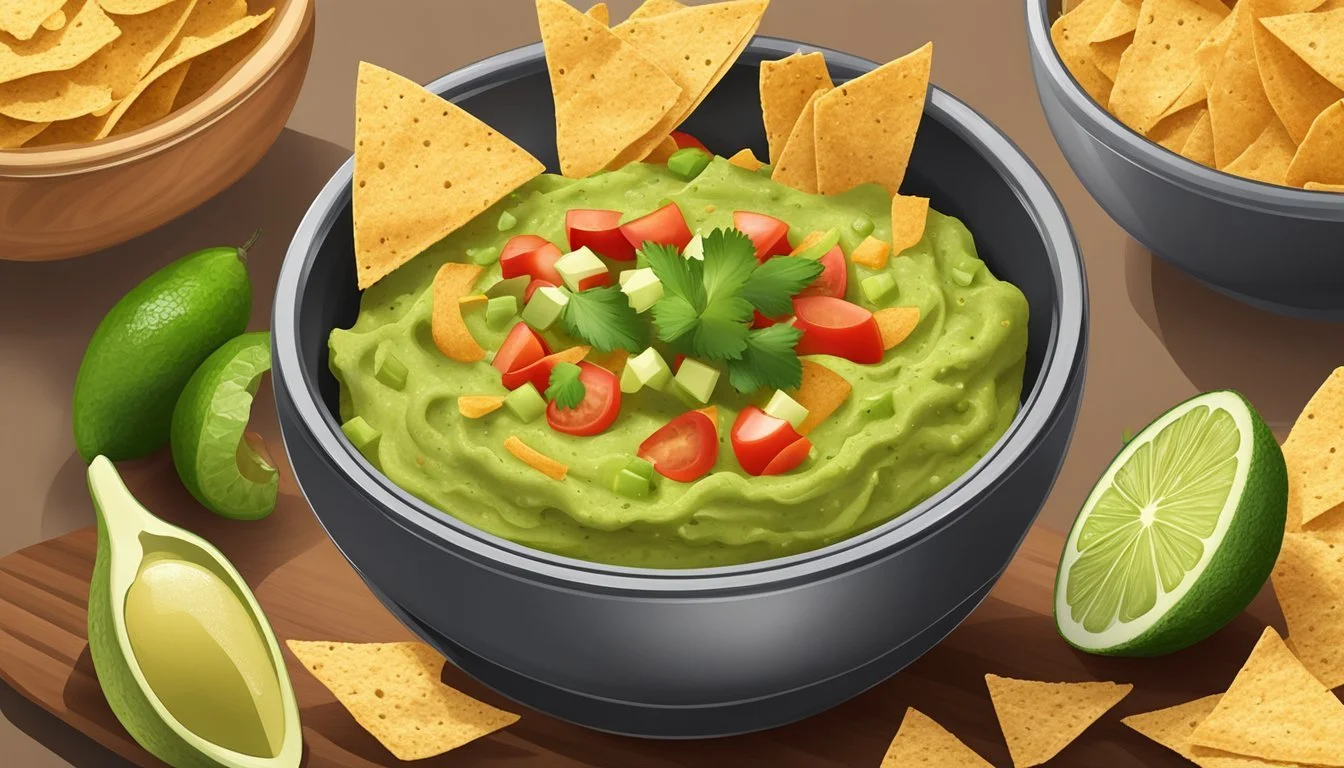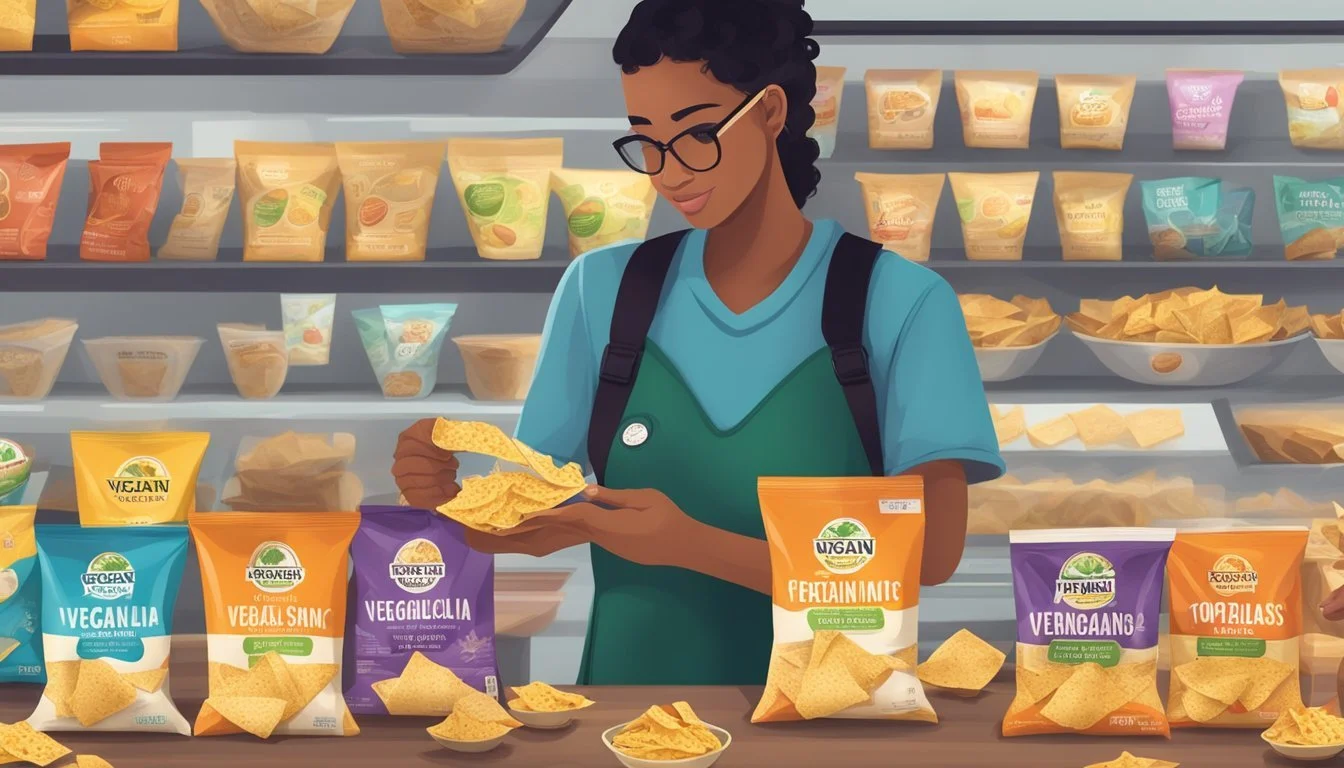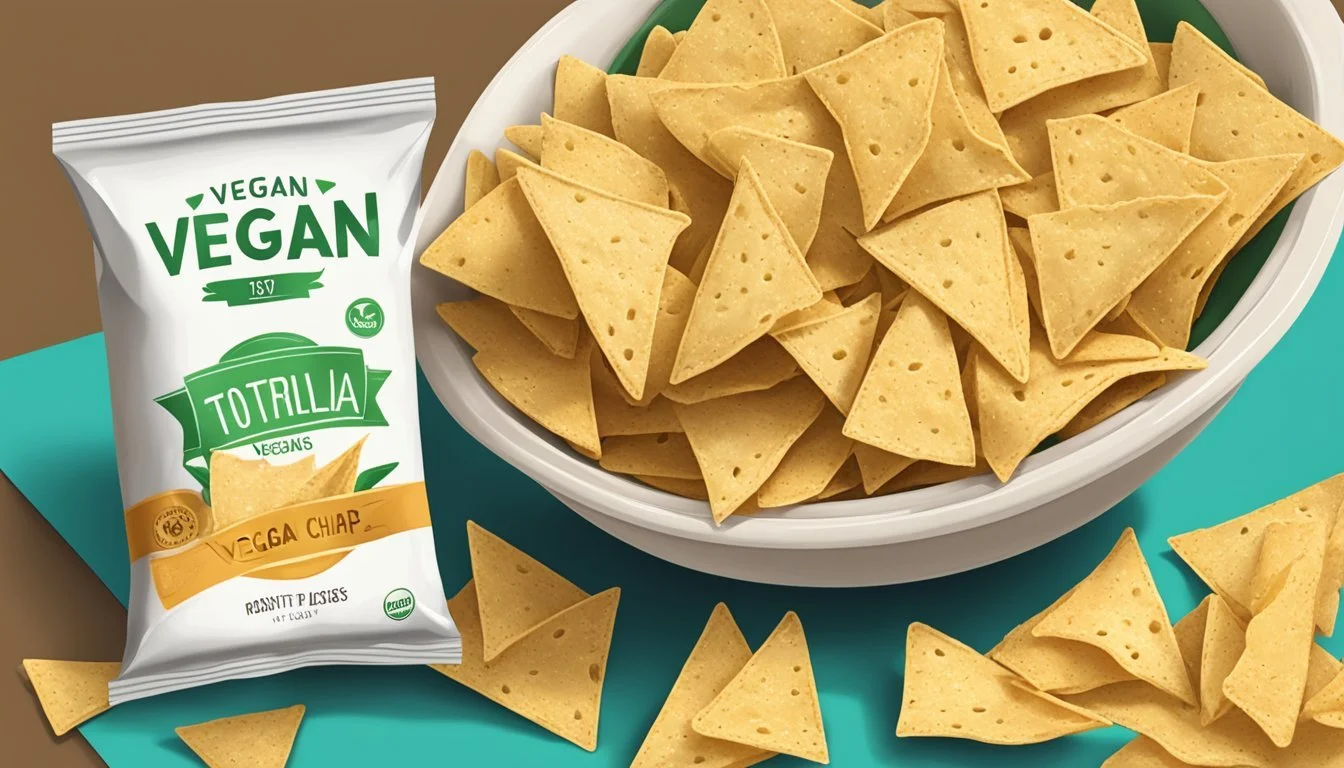Are Tortilla Chips Vegan?
Unveiling the Truth About Your Favorite Snack
In exploring the dietary landscape, tortilla chips are a common point of inquiry for vegans in search of plant-based snacks. Traditionally made from a simple blend of corn, vegetable oil, and salt, these crunchy treats are staples at gatherings and are a favored accompaniment to dishes such as salsa and guacamole. The basic ingredients of tortilla chips are vegan-friendly, which aligns them with the vegan diet that excludes animal products.
However, as the demand for a variety of flavors has increased, so has the complexity of the ingredients list. Many flavored tortilla chips on the market incorporate additives and seasonings that are derived from animals, such as cheese powders or milk proteins. To maintain a vegan diet, individuals must pay close attention to the ingredient lists, especially when it comes to these flavored varieties. Some brands do offer vegan-friendly flavors, which are clearly marked and targeted at those adhering to the vegan lifestyle.
Consumers must remain vigilant and informed when selecting tortilla chips, considering both the base ingredients and the potential inclusion of non-vegan elements in flavored options. This attention to detail ensures that vegans can enjoy tortilla chips without compromising their ethical and dietary choices.
What Makes Tortilla Chips Vegan?
When determining if tortilla chips are suitable for a vegan diet, the focus is primarily on the ingredients used in their production. Vegan tortilla chips are made from plant-based ingredients, whereas non-vegan varieties may include animal-derived components.
Basic Ingredients of Tortilla Chips
The fundamental elements of traditional tortilla chips are fairly straightforward. They typically consist of:
Corn: The primary ingredient, either as whole corn kernels or corn flour.
Oil: Usually a plant-based oil such as sunflower, canola, or vegetable oil.
Salt: Added for seasoning.
Water: Sometimes used in the process to mix the ingredients.
These ingredients are inherently vegan, as they are all derived from plant sources.
Common Non-Vegan Ingredients to Watch Out For
While the basic components are vegan, some tortilla chips incorporate non-vegan ingredients, particularly in flavored varieties:
Cheese: Dairy cheese is commonly used in flavored chips.
Milk or milk derivatives: These can be present as ingredients for flavor and texture.
Lard or animal fat: Occasionally used in place of plant oils, especially in traditional recipes.
Animal-derived seasonings: Some spices or seasonings may have hidden animal products.
It's crucial for consumers following a vegan diet to read labels carefully to identify any non-vegan ingredients.
Identifying Vegan-Friendly Tortilla Chips
To ascertain whether tortilla chips are vegan-friendly, one should:
Read the label: Ingredients and allergen information can provide insight into the product's vegan status.
Look for certifications: Labels such as "Certified Vegan" can help quickly identify suitable options.
Contact the manufacturer: When in doubt, reaching out to the maker can clarify whether their product meets vegan standards.
Ultimately, the majority of plain tortilla chips meet vegan criteria, while flavored and specialty varieties require careful label reading to ensure they align with a plant-based diet.
Types of Tortilla Chips
In the realm of tortilla chips, there are a myriad of options that cater to diverse palates and dietary preferences. Tortilla chips can primarily be classified into plain, flavored, and specialty varieties, each with distinctive ingredients and taste profiles.
Plain Tortilla Chips
Plain tortilla chips are often the go-to choice for purists. These chips are typically made with basic ingredients such as ground white, yellow, or blue corn, water, vegetable oil, and sea salt. Late July and Santitas are popular brands offering plain organic tortilla chips that appeal for their simplicity and vegan-friendliness.
Flavored Tortilla Chips
Flavored tortilla chips introduce a variety of seasonings to enhance taste. Common flavorings include lime, nacho, ranch, and spicy sweet chili. Brands like Doritos are famous for their bold flavors, though not all flavors are vegan-friendly due to cheese or other animal-derived ingredients. Consumers must read labels to ensure that the flavorings used are indeed vegan.
Specialty and Artisan Tortilla Chips
Specialty tortilla chips elevate the snacking experience with unique ingredients and craftsmanship. Options may include blue corn tortilla chips, quinoa-infused chips, or white strips tortilla chips. Brands such as Siete stand out by offering artisan tortilla chips with a focus on gluten-free and vegan options, crafted from alternative grains and showcasing innovative flavors that cater to health-conscious consumers.
Preparation Methods
The preparation methods for tortilla chips significantly impact their taste, texture, and suitability for a vegan diet. They can be generally classified into fried, baked, and restaurant-style, with each method leveraging different techniques and ingredients.
Fried Tortilla Chips
To make fried tortilla chips, manufacturers or individuals cut corn tortillas into wedges and then fry them in vegetable oil until they achieve a golden brown color and a crispy texture. The recipe typically includes corn flour, water, oil, and salt. For a vegan-friendly version, it is important to ensure that the oil is plant-based, with options such as sunflower, canola, or corn oil being popular choices.
Baked Tortilla Chips
The preparation of baked tortilla chips involves cutting the tortillas into wedges, lightly coating them with a layer of oil, and seasoning them before they are arranged on a baking sheet and placed into an oven. The temperature and time may vary, but the goal is to produce chips that are crisp without the need for deep frying. This method is not only vegan but also often considered a healthier alternative due to the reduced oil content.
Restaurant-Style Chips
Restaurants typically serve freshly made tortilla chips that are often fried in-house. Their vegan status can depend on the type of oil used by the restaurant and whether any non-vegan toppings or seasonings are added before serving. It is advisable for vegans to inquire with the server about the oil and ingredients to confirm that the chips are free from animal-derived products.
Complementary Vegan Foods
When enjoying tortilla chips as part of a vegan diet, one can enhance the snacking experience with a variety of plant-based accompaniments. These vegan-friendly options offer a mix of flavors and textures that complement the simple, crisp taste of tortilla chips.
Dips and Salsas
Vegan consumers often pair tortilla chips with a range of dips and salsas that are both flavorful and cruelty-free. Traditional salsa, made from ripe tomatoes, fresh cilantro, and tangy seasonings, is a classic choice. Guacamole, with its creamy texture derived from avocado, is another staple that not only tastes great but also adds a nutritious boost to the snack.
Vegan Toppings
Beyond dips, tortilla chips can be topped with an assortment of vegan ingredients for a more substantial treat. Options include:
Beans: Black or pinto beans provide protein and fiber.
Corn: Adding roasted corn kernels brings sweetness and texture.
Rice: Seasoned rice can make for a fuller, more satisfying snack.
Potato Chips: For extra crunch, sprinkle some crushed vegan potato chips on top.
Alternative Vegan Snack Options
While tortilla chips are a popular snack, those following a plant-based diet may also enjoy other snacks. Some alternatives are:
Sweet Potato Chips: These offer a sweet and salty contrast and are rich in beta-carotene.
Rice Cakes: Light and airy, these can be topped with a variety of vegan spreads and veggies.
Maize-based Snacks: Various snacks made from maize complement the corn foundation of traditional tortilla chips.
By exploring these plant-based options, vegans can relish in a variety of complementary foods that align with their dietary choices without compromising on taste or texture.
Nutritional Consideration
When considering tortilla chips from a nutritional perspective, it is important to examine their health impacts, caloric and fat content, and potential allergenic ingredients, as these factors are crucial for those adhering to vegan diets and monitoring their overall health.
Health Benefits and Concerns
Tortilla chips can be a source of nutrients like fiber and protein, particularly when they are made from whole corn. The presence of spices and seeds in some varieties may also add to their nutritional profile. However, overconsumption carries the risk of high caloric intake and excessive fat, especially in flavored or commercial variants that may contain added oils and seasonings.
Caloric and Fat Content
The caloric and fat content of tortilla chips can vary. A serving size typically contains around:
150 calories
8 grams of fat
This reflects the basic recipe of corn flour, oil, and salt. Notably, flour tortillas often have higher calorie and fat content compared to corn tortillas due to the differing ingredients and preparation methods.
Allergen Information
Tortilla chips are generally gluten-free if they are made from 100% corn. However, individuals with allergies or sensitivities should be aware that:
Flour tortillas often contain wheat, and therefore gluten.
Chips may be produced in facilities that also process soy, dairy, and other allergens.
Consumers seeking organic options may find brands that specifically use organic corn and oil, reducing exposure to pesticides and GMOs. It's always recommended to read labels carefully for the presence of any allergens or non-vegan ingredients.
Purchasing and Availability
Consumers will find a wide array of tortilla chip options available, both in retail environments and dining establishments, with vegan options often clearly labeled.
Store-Bought vs. Restaurant Chips
When purchasing store-bought tortilla chips, consumers typically encounter a variety of brands offering products that are vegan. The basic ingredients of these chips are usually a blend of corn flour, water, oil, and salt, all plant-based and suitable for vegans. Many mainstream brands, such as Tostitos, label their products to indicate their vegan status, making it easier for consumers to make informed decisions. Availability varies from supermarkets to health food stores, with options like:
Basic corn tortilla chips: Widely available and typically vegan.
Flavored chips: Availability varies; may contain non-vegan ingredients.
In contrast, restaurant tortilla chips may not always be vegan due to differences in preparation methods. Taco Bell, for instance, provides tortilla chips that are vegan-friendly. However, consumers should be aware that some restaurants fry their tortilla chips in the same oil as animal products, which may not align with strict vegan preferences. It’s always advisable for consumers to inquire about cooking methods and ingredients before consumption at:
Fast-food chains: Such as Taco Bell, where vegan options are marked.
Sit-down restaurants: May require direct inquiry to ensure vegan preparation.
Making Your Own Vegan Tortilla Chips
Creating vegan tortilla chips at home is a straightforward process involving few ingredients and minimal steps. One can easily avoid animal-derived components and unwanted additives found in some store-bought options by making chips from scratch.
Homemade Tortilla Chip Recipes
To prepare vegan tortilla chips, one typically needs masa harina (a type of corn flour used for making traditional Mexican tortillas), water, and salt. For the chips, they would mix masa harina with water to form a dough, then roll it out and cut it into triangles. These triangles are then baked or fried until crisp.
A basic recipe can involve:
Preheating the oven to 375°F (190°C).
Combining 2 cups of masa harina with 1 to 1.5 cups of warm water and 1/2 teaspoon of salt to form a dough.
Rolling the dough to about 1/8-inch thickness and cutting into chip-sized triangles.
Placing triangles in a single layer on a baking sheet lined with parchment paper and baking for about 15-20 minutes, flipping halfway through, until they are crisp and light golden brown.
To fry them instead:
Heat a large pot with a suitable frying oil (such as sunflower, canola, or vegetable oil) to 350°F (175°C).
Fry the dough triangles in small batches until they are crispy and lightly browned, usually 1-2 minutes per side.
Remove with a slotted spoon and let them drain on a paper towel-lined plate.
Ingredient Substitutions
When making vegan tortilla chips, individuals often seek ingredient substitutions to accommodate dietary preferences or to improve the nutritional profile. They might replace refined flour with whole wheat flour for a fiber boost. Home cooks can also vary seasonings to preference, adding garlic powder, lime juice, or chili powder for additional flavor.
One may be concerned about the use of palm oil due to its environmental impact. As an alternative, they might use other oils like olive oil, or avoid oil entirely for an oven-baked version that is still crisp and satisfying. The absence of oil makes the chips a healthier option as well.
For color variations, natural colorants such as beet powder for red or spinach powder for green can be used to make the chips visually appealing while maintaining their vegan status. These substitutions allow for a range of flavors and colors in the homemade chips without the need for animal products or artificial additives.
Ethical and Environmental Considerations
When discussing vegan tortilla chips, two crucial aspects must be taken into account: the ethics surrounding animal welfare and the environmental impact of the ingredients used.
Animal Cruelty and Vegan Ethics
Vegan consumers often choose foods based on the principle of avoiding animal cruelty. It is essential that tortilla chips not contain any animal-derived ingredients or by-products. Cruelty-free goes beyond the absence of animal ingredients; it also means that none of the components should be tested on animals. Tortilla chips that are certified vegan can assure consumers that their production adhered to these ethical standards.
Sustainability of Ingredients
The environmental element of tortilla chips pertains to the sustainability of ingredients used. Ingredients should ideally be ethically sourced and organic to minimize the ecological footprint. The corn, vegetable oil, and salt—the primary components in traditional tortilla chips—should come from sources that prioritize environmental stewardship. For instance, organically grown corn is produced without synthetic pesticides and fertilizers, which is better for the planet. Ethical sourcing also means that workers involved in farming and production processes receive fair treatment and compensation.
Frequently Asked Questions
This section addresses common inquiries about the vegan status of tortilla chips, their taste, and availability, providing clear answers for consumers.
Are All Tortilla Chips Vegan?
Most tortilla chips are vegan because they are made from a simple blend of corn flour, water, vegetable oil, and salt. However, flavored varieties often include non-vegan ingredients such as cheese or other dairy products. It is crucial for consumers to check the packaging labels for any non-vegan flavorings or seasonings.
Can Vegan Tortilla Chips Taste Like Regular Chips?
Vegan tortilla chips can indeed taste like regular chips as they usually share the same base ingredients: corn, oil, and salt. Advanced food technology has allowed the creation of a wide range of vegan seasonings that mimic traditional flavors, so taste is typically uncompromised.
Where Can I Find Vegan Tortilla Chips?
Vegan tortilla chips are readily available in most grocery stores. A consumer can find them within the snack aisle, and especially in stores with health food or specialty sections. Brands like Tostitos and Mission offer vegan options, but for other brands, it's essential to verify ingredients. Some specialized online retailers and vegan shops might also stock various vegan chip options.
Conclusion
Tortilla chips, in their basic form, are typically vegan, as they consist of corn, vegetable oil, and salt. These ingredients do not derive from animal products, which aligns with a vegan diet. Consumers should be aware that variations exist, particularly with flavored or specialty chips, which may incorporate non-vegan elements such as cheese or other animal-derived seasonings.
When assessing the vegan status of tortilla chips, careful consideration of labels is advised. One can often find suitable options among well-known brands offering plain tortilla chips. For those seeking a warm treat, some chips can be heated in the oven for added crispness and warmth, while still maintaining their vegan integrity.
A diverse range of vegan-friendly tortilla chips are available on the market, including options made from ingredients such as sweet potatoes or blue corn.
Here's a quick reference to keep in mind:
Basic Ingredients: Corn, Vegetable Oil, Salt
Watch Out For: Non-vegan flavors added
Brands: Some may vary in their commitment to vegan products
Preparation: Oven-warming can enhance the snack experience
Consumers looking for vegan snacks can generally rely on plain tortilla chips as a safe choice, while remaining vigilant about the inclusion of potential non-vegan additives in flavored varieties.








